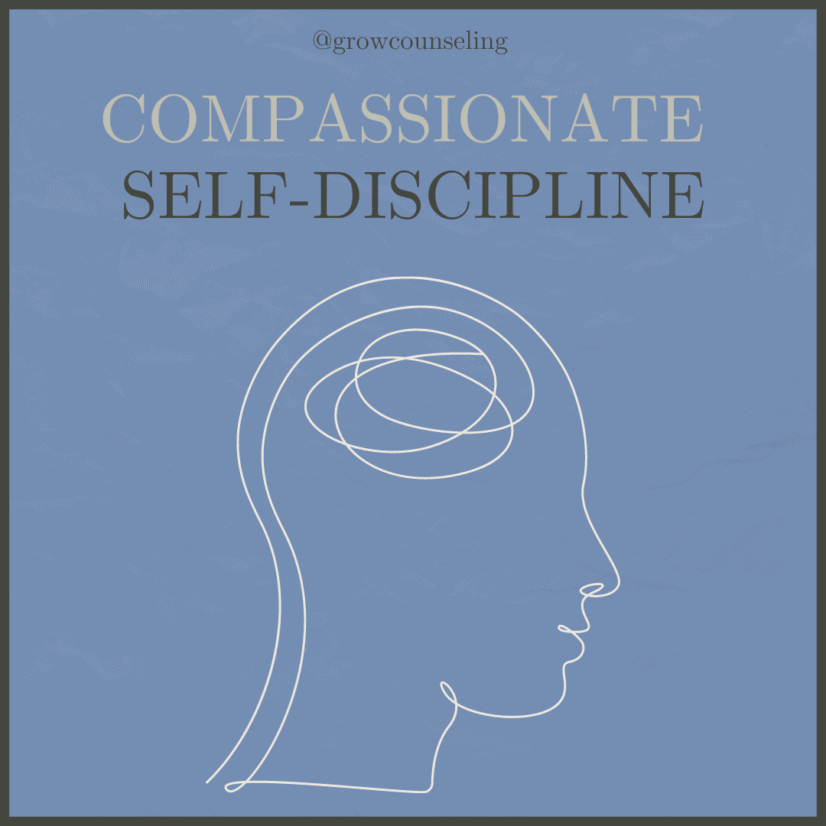Compassionate Self-Discipline

Self-compassion and discipline. When speaking with clients, these two concepts are often seen as opposing ideas, something we have to choose between. The fear commonly expressed is, “if I give myself compassion and kindness, I am never going to get anything done! My life is going to be a free-for-all, I’ll never reach my goals. I will over-indulge myself in every way.” I understand the fear, especially if we are used to being motivated by shame or punishment. Dr. Maya Shetreat stated, “If being hard on yourself worked, it would have worked by now.” Read that again, in the first person. “If being hard on myself worked, it would have worked by now.” When reading that statement, what did you notice? You may have noticed some pushback and resistance, or maybe you noticed relief–a weight off of your shoulders, a possibility of something different.
Self-compassion and discipline can go hand in hand. When we are pursuing discipline out of a place of condemnation, shame, and punishment, there is no self-compassion. Self-compassion is allowing ourselves to acknowledge when something is difficult, validate that experience, and offer ourselves care and encouragement to stay the course. The reality is, over-indulgence, and its partner on the opposite end of the spectrum, rigid restriction, are rarely truly caring for ourselves. Behaving out of those spaces may provide us with a sense of familiarity, comfort, or control, but rarely true care. When we decide to stay with something and practice discipline out of believing we are worthy of the result (i.e. worthy of healthy relationships, a healthy body, a fulfilling career), we are motivated by care. This kind of discipline may feel foreign at first, but you may also find it feels much more life-giving than consistently needing to punish and shame ourselves into acceptance.
If you are wanting to start your journey to self-compassionate discipline, here are a few starting points.
- Check your negative self talk. As we begin to notice the things we are telling ourselves, this awareness allows us the ability to begin changing it.
- Think about how you would respond to a friend–would you speak to them how you just spoke to yourself?
- Consider your “why”–why is doing the work to pursue this goal important to you? Is your why coming from a place of shame or punishment, or is it from care and belief in yourself?
Originally posted on Grow Counseling
Tags: Atlanta Counseling, Compassion, development, self care